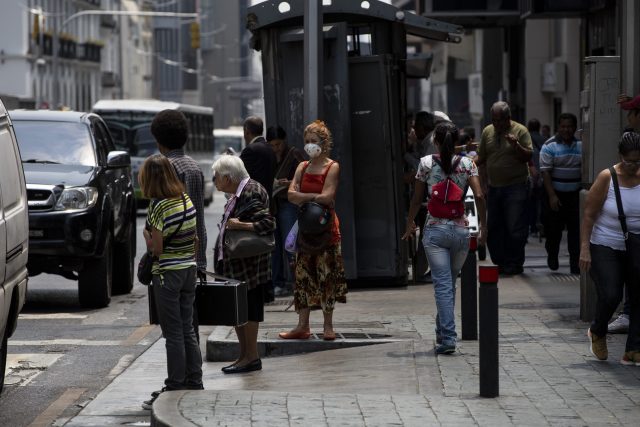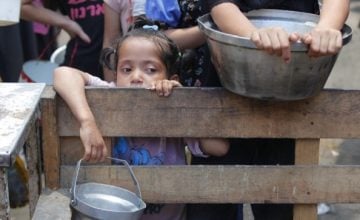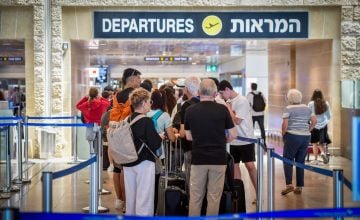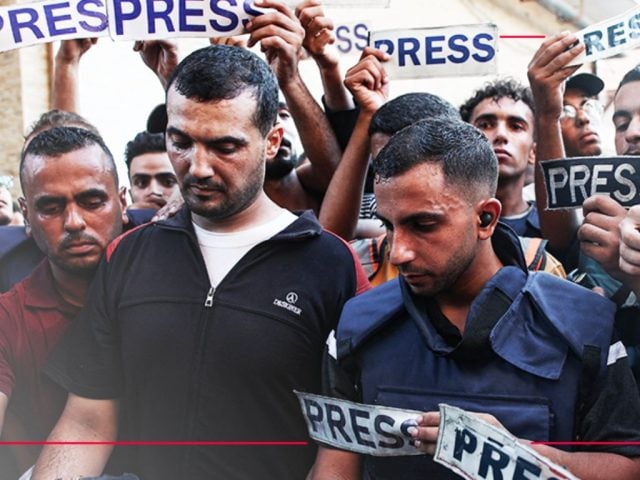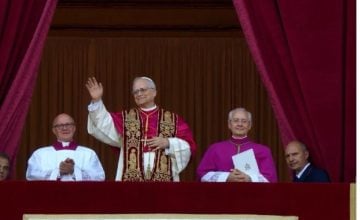In Venezuela, there is definitely a different reality, and in this context two facts stand out that seem to be in conflict: a minimum wage of less than three dollars and an economic reality with most transactions in foreign currency. Between these two poles, a third element is even more disconcerting, the perception that the country has improved compared to recent years.
Talking about this improvement could be a serious affront for some, despite how contradictory it may seem, describes a report by Nathali Gómez for RT, where she interviewed economists Luis Vicente León, president of the Datanálisis polling company, and Óscar Forero, a researcher at the Border Studies Research Center (CIEF), to learn about their views on these changes that have become more visible in the midst of the pandemic.
In recent days, videos and publications of ‘influencers’ that describe what they have seen when they arrive in the country have become a trend in the networks. With their different styles, everyone agrees that things have changed for the better and that the image of the country abroad is distorted.
One of the clips that generated the most reactions was that of the Venezuelan actress Norkys Batista, currently living in Miami, who returned to the capital after two years of absence.
«I found Caracas more looked after, well kept, it surprised me a lot. The city is beautiful, that must be admitted. Now that I am visiting Venezuela I am realizing that the reality is very different from what we see when we are abroad».
Not only Batista has made comments of this type. Luis Villar Sudek, known as ‘Luisito Comunica’, and Alex Tienda, Mexican influencers who have recorded their tours of some places in Venezuela, have also been rejected by a part of their followers who accuse them of falsifying reality and distracting attention to the country’s problems. However, they have also thanked them for showing a face of Venezuela that is not so well known internationally.
«Luisito«, who this week announced that he bought a house in the coastal city of Lechería, in the state of Anzoátegui, speaks in a video in late August about what he found when he returned, four years after his first visit.
He recalls that in 2017 he arrived in the midst of a strong economic crisis and protests of the opposition against President Nicolás Maduro, which resulted in acts of violence and the death of at least 100 people. Referring to this new trip, he affirmed that things improved, that he noticed people «more cheerful», that «walking no longer feels so dangerous», that people go out to consume and that «the economy is moving more» .
Despite the fact that none have shown closeness or sympathy for the Government, and that they have not stopped referring to the failures of public services and the long lines to refuel that have a price subsidy by the State (A person can also refuel in some gas stations at a higher price in dollars, Petros or Bolivares), they have accused them of having received money to «speak well». The debates on the networks are endless and intensify with each new publication that immediately becomes a trend.
To get into context, the South American country suffered a brutal economic contraction caused by the fall of 99% of its oil revenues as a result of the attacks and embezzlement against the State oil company PDVSA, in addition to the sanctions imposed by the United States and the European Union with the objective to depose Maduro. Venezuelans rode, during these last years between hyperinflation and the pulverization of the bolivar, as well as a shortage of foreign exchange, basic products, medicines and quality public services.
Better or worse?
The analysts consulted agree that the situation has improved in Venezuela, compared to recent years, due to the fact that income has become dollarized.
León clarifies his perception of this improvement and affirms that “one thing is to improve and another thing is to be well: you can improve being in intensive care and that does not mean that you are well; you have improved with respect to a condition that could be worse». In his opinion, the Venezuelan situation is «very complex» and «it is important to understand that the comparative improvement analysis refers to 2018».
For the economist, a country «cannot be better» with a cumulative fall of 70% of GDP, according to partial data from the Central Bank of Venezuela and other estimates, with a «lot of exchange and financial distortions», without bank credit and where problems persist in the supply of water and electricity.
Forero adds that the current situation is not better than in 2010, but it is with respect to 2017 and 2018. He asserts that «the economy has been improving» and there are figures «that recognize that the fall in Venezuela is no longer so significant» .
For example, the International Monetary Fund (IMF) predicts that this year the decline in GDP will be 10% compared to 25% in 2020, while the Economic Commission for Latin America and the Caribbean (ECLAC) places the decrease at -4% by 2021 compared to -30% a year ago.
Referring to GDP, the expert explains that although its decline is based on macroeconomic data «there is an underground economy that does not appear in GDP» and «one could say that Venezuela’s economy has stopped declining» and «its having a small but perceived rise «, which should «be strengthened» with measures of a political and economic nature and negotiations in Mexico» so that «there can be a significant start-up of the State and of the large companies».
For the analyst, entering this new stage «should be a source of pride for Venezuelans». «It’s not just anything: we are talking about the country with the most complex economic crisis in Latin America, in contemporary history».
Can one live on a minimum wage?
But to talk about improvement, one cannot ignore a recurring question on the networks, the response of which generates immediate confrontation: «How does someone who earns the minimum wage in Venezuela manage to live?» From this approach, users usually calculate how many years of salary (Minimum wage) – equivalent to $ 2.5 per month – would it take to buy products or real estate. The result generates even more bitter comments if one takes into account that in 2012 the minimum wage reached almost 500 dollars, not counting the food bonus that raised it to about 700.
The minimum wage is a reference calculation base for a sector of public administration workers, made up of some three million people; pensioners, who number five million, and some private sector companies. Venezuela has almost 30 million inhabitants and its active population corresponds to 50%, some 14 million people, according to the National Institute of Statistics (INE).
Less than three dollars a month
«It is impossible to subsist on 2.5 dollars a month», an amount with which you can buy two kilos of rice in Venezuela. The two analysts consulted agree on this statement and León is emphatic: “It is not possible. For the majority of the population, their income has absolutely nothing to do with the minimum wage».
«Now the question is: ‘Are you seeing all the dead Venezuelans in the street? Are you picking them up with a shovel? No. And then what happens? That the population is looking for alternatives and that some of their income has been dollarized», adds León.
On the street, people have learned to move in an «alternate market» for foreign exchange that is «neither influenced nor dominated by the State», as in the past when there was an official exchange rate and a ‘parallel’ exchange rate, which was a speculative exchange rate of the US currency, adds Forero. «That is why we see how a Venezuelan person does not have one salary, a single income, a single job, but now he has two, three or four».
The researcher from the Border Studies Research Center considers that the issue of the minimum wage has also been » instrumented politically» with a discourse projected abroad, so as «to say that Venezuelans are dying of hunger», when comparing it with the monthly income of workers in the region.
Despite what both experts explain, the media continues to make accounts with a referential salary that lost its validity in the current dynamics of free circulation of dollars. Therefore, now we must ask ourselves: Is it a taboo subject to say that Venezuelan workers earn much more than a minimum wage?
The director of Datanálisis asserts that everything is «taboo» when going through a crisis and «it is intended to show a part that has been resolved, that improves, that is not so dramatic». «People believe that you support the government or that you minimize the negative impact, and it’s not about that, it’s about understanding reality», he explains.
«De facto dollarization in Venezuela»
Although the current currency in Venezuela is the bolivar, those who live in the South American country use foreign currency on a daily basis to buy products and pay for goods and services. It is becoming more and more common to calculate in dollars when making a budget, when taking a basic account to buy something or when estimating an expense.
«There is a de facto dollarization process», says Forero, who explains that Venezuelans have tried to change their «income relationship» with the bolivar, «a very unstable currency», to other types such as the dollar, the Colombian peso, the Brazilian real and cryptocurrencies, among others, to «limit somewhat the damaging role of inflation».
Beyond small daily transactions, the impact has also been felt in the business sector, where dollarization «has been positive» and has generated production and supply of products, adds the president of the Venezuelan polling station.
León refers to a «transactional dollarization», which has been «massifying with or without legal frameworks», without being formalized, among other things, «because the Central Bank and the Government are sanctioned» by the United States.
How to pay the salary?
Regarding the money that each employee receives for his work, there is no single table and it is usually discretionary. For example, a plumber or electrician could charge up to $ 40 to perform a service; a doctor $ 70 per visit while a cleaning person could earn between $ 10 and $ 15 each day.
However, the situation is different for those who are not self-employed. For example, a university professor could earn about $ 10, without his salary being indexed to the dollar, so that, although for the other workers the situation improved, “for him it is worse because he faces a non-dollarized income » and » divorced from costs», adds León.
After breaking down the «fine print» of the minimum wage, which goes unnoticed in the mainstream media, a new question appears. How are expenses covered with dollarized prices? The CIEF researcher responds that Venezuelans have had to «assume multiple strategies» such as obtaining various sources of income through various jobs and ventures in small and medium-sized enterprises.
Remittances in Venezuela
Another important factor, which came into play after the migration of Venezuelans given the economic situation, is the receipt of remittances that «have a clear weight» and «energize» the economy, according to Forero.
The president of Datanálisis considers that they are an «important variable within the total income of the nation but they are not the largest element». According to the estimates of the pollster, which he presides over, this year an entry to the country of 3,000 million dollars in remittances is expected.
Another phenomenon that has occurred is that, over the years, the amounts of foreign currency remittances have varied because «there has been an increase in the need for foreign currency due to a distortion in the exchange rates».
«The devaluation of the currency is much slower than the domestic inflation in bolivars, so more dollars are needed to buy the same products. Three years ago, for example, the average remittances were 60 dollars and now they are between 120 and 150 dollars per family», he adds.
An economic miracle in Venezuela?
Maduro has come up with the term «economic miracle» to speak of the very near future in the country. In this regard, León flatly denies that it is close to happening and affirms that the Government «lost control of the economy and had to open up because it had no other choice».
For his part, Forero focuses it on other actors and attributes the «miracle» to the workers «in the midst of a «process of economic recovery that has been more a real work of economic agents than an intervention of the private or public sector».
«I think it was an ‘economic miracle’ taking into account all the capacities of resistance of the Venezuelan people,» concludes Forero.
